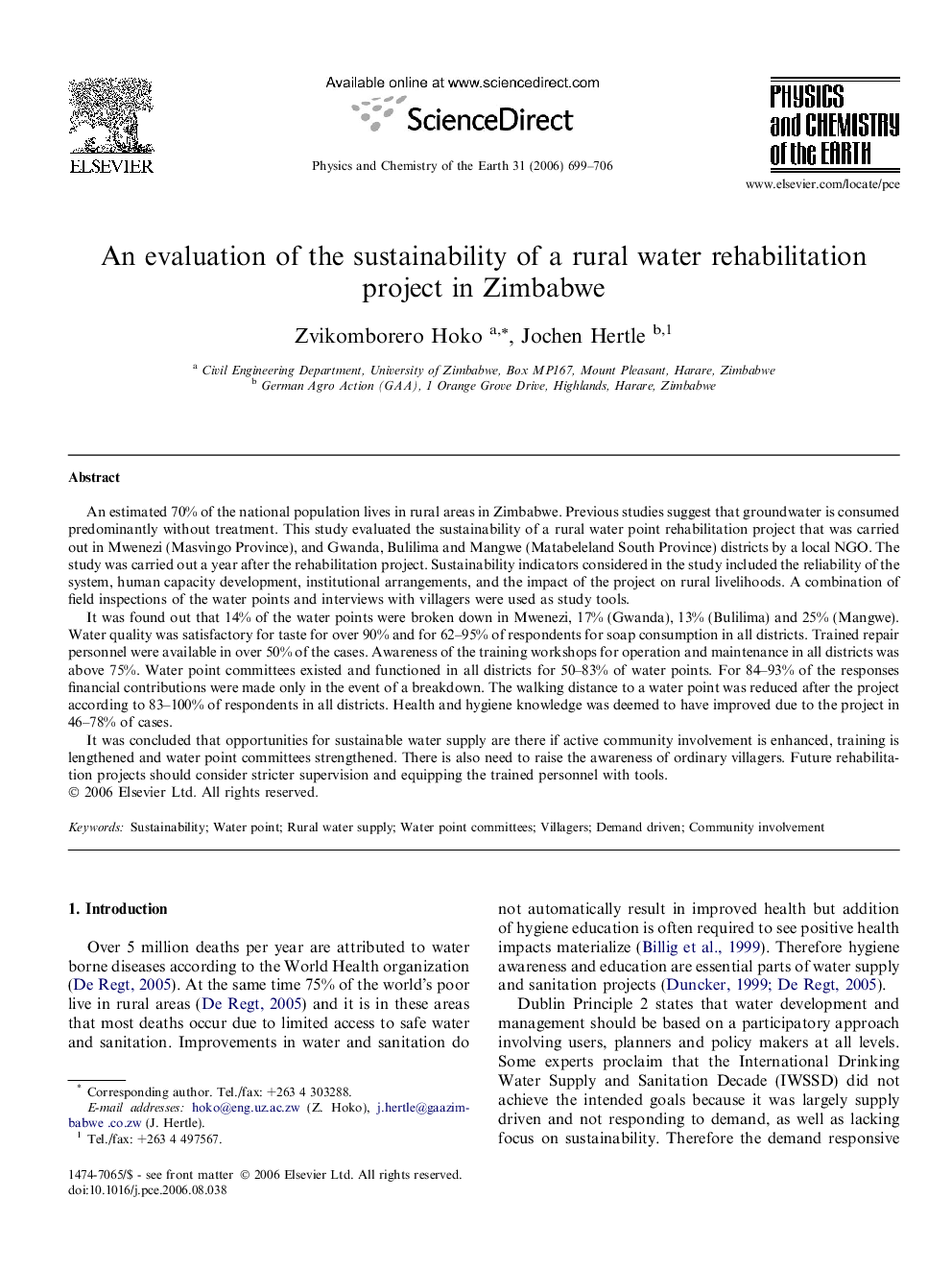| کد مقاله | کد نشریه | سال انتشار | مقاله انگلیسی | نسخه تمام متن |
|---|---|---|---|---|
| 4722164 | 1639408 | 2006 | 8 صفحه PDF | دانلود رایگان |

An estimated 70% of the national population lives in rural areas in Zimbabwe. Previous studies suggest that groundwater is consumed predominantly without treatment. This study evaluated the sustainability of a rural water point rehabilitation project that was carried out in Mwenezi (Masvingo Province), and Gwanda, Bulilima and Mangwe (Matabeleland South Province) districts by a local NGO. The study was carried out a year after the rehabilitation project. Sustainability indicators considered in the study included the reliability of the system, human capacity development, institutional arrangements, and the impact of the project on rural livelihoods. A combination of field inspections of the water points and interviews with villagers were used as study tools.It was found out that 14% of the water points were broken down in Mwenezi, 17% (Gwanda), 13% (Bulilima) and 25% (Mangwe). Water quality was satisfactory for taste for over 90% and for 62–95% of respondents for soap consumption in all districts. Trained repair personnel were available in over 50% of the cases. Awareness of the training workshops for operation and maintenance in all districts was above 75%. Water point committees existed and functioned in all districts for 50–83% of water points. For 84–93% of the responses financial contributions were made only in the event of a breakdown. The walking distance to a water point was reduced after the project according to 83–100% of respondents in all districts. Health and hygiene knowledge was deemed to have improved due to the project in 46–78% of cases.It was concluded that opportunities for sustainable water supply are there if active community involvement is enhanced, training is lengthened and water point committees strengthened. There is also need to raise the awareness of ordinary villagers. Future rehabilitation projects should consider stricter supervision and equipping the trained personnel with tools.
Journal: Physics and Chemistry of the Earth, Parts A/B/C - Volume 31, Issues 15–16, 2006, Pages 699–706